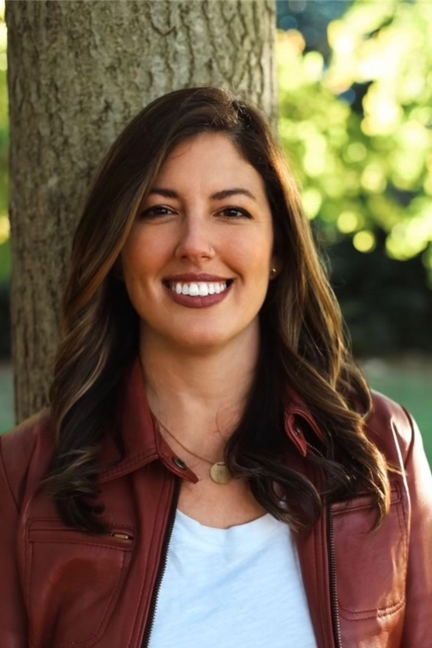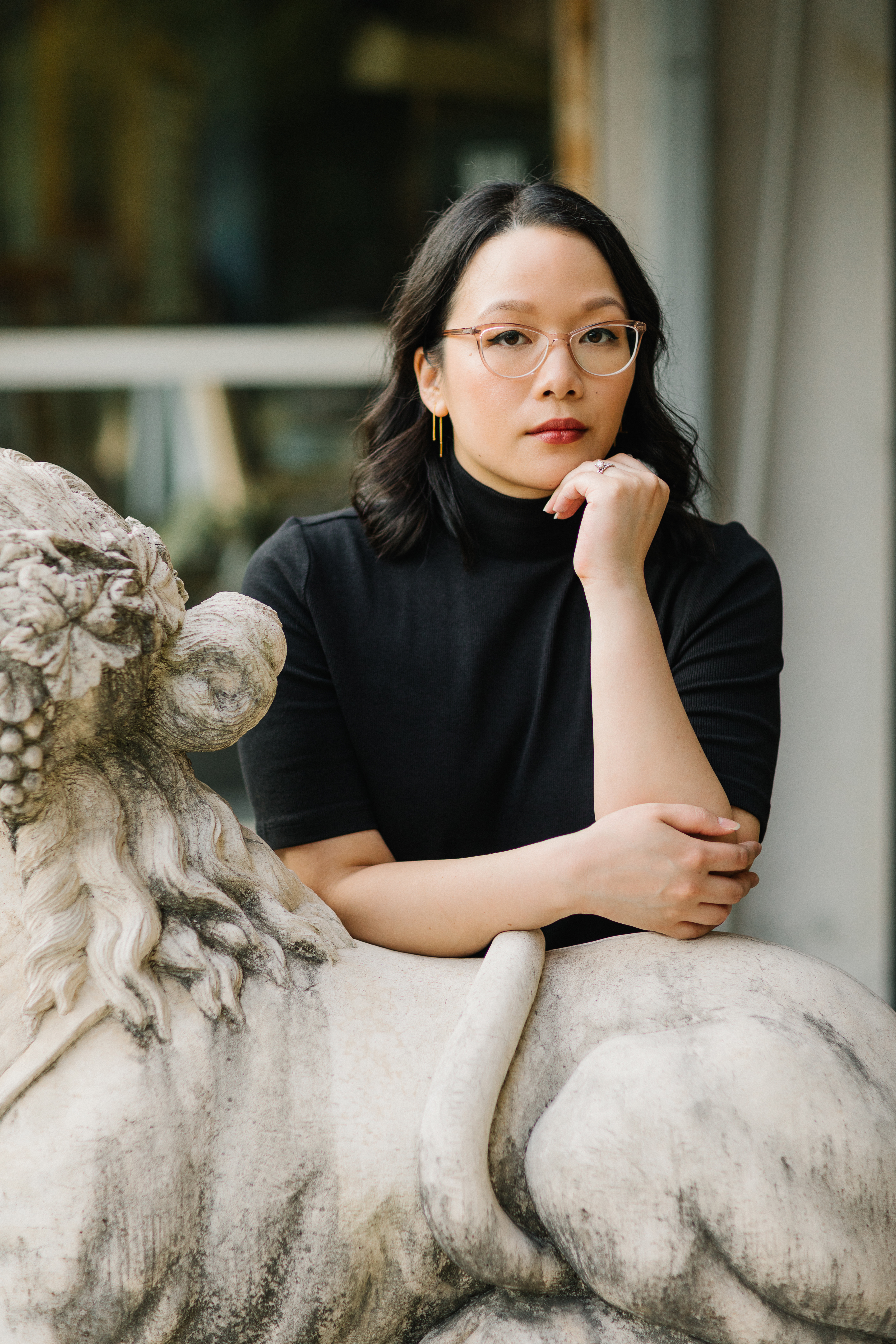Andrea Hannah and Trang Thanh Tran: The Nature of Horror
Jul 13, 2023Andrea Hannah is an author, astrologer and workshop leader. She teaches about the creative process to people all over the world through her workshops and retreats. She is the author of Where Darkness Blooms (Wednesday Books).
Trang Thanh Tran writes speculative stories about food, belonging and the Vietnamese diaspora. When not writing, they can be found over-caffeinating on iced coffee and watching zombie movies. She Is a Haunting (Bloomsbury) is their debut novel.
Here the authors discuss how the horror genre is growing and changing, social commentary in horror fiction and writing the terrifying for teens.
Andrea Hannah: It's bananas that there were so many similar motifs in our books, even though we didn't know each other! I wonder if there's something in the collective consciousness about scary flower girls at the moment. There are so many current horror releases that blend themes of sentient nature and body horror in unique and interesting ways. It's a really exciting time to be a horror fan.
Trang Thanh Tran: Right! Coming-of-age can be such an isolating experience where you're learning things about yourself, your body and your relationships with the outside world. Emotionally, there's so much going on. I often joke that my books are about the horrors of growing up. Not everything is a metaphor, but also everything is a metaphor. It's fun to explore that in a horror novel, as nature--which is always growing or rotting--creeps in.
 |
|
| Andrea Hannah (photo: Brooke Light) |
|
Hannah: You bring up a good point about nature as a metaphor for growing up. I think up until your teenage years, you tend to see the world in a pretty one-dimensional way, through no fault of your own, of course. Then, all of a sudden, everything seems so much more complex and nuanced than you realized. In Where Darkness Blooms, our four main girls have been living on blood-thirsty, cursed land their entire lives, but they had mostly been sheltered from harm by their mothers. When their mothers disappear, they begin to see the sunflowers lurching toward them, the wind whispering in their ears, and so on. Nature is beautiful and it's extremely brutal. I think that juxtaposition makes for the perfect entry point to really potent horror.
When you started drafting your book, did you intend to thread in a larger commentary on colonialism or did you intend to write one girl, one summer?
 |
|
| Trang Thanh Tran (Heather Wall Photography) |
|
Tran: It's the story of one girl and her family. I try to lead with a character in my books because the emotional journey is most important to me. But characters have history, too, and because her family survived colonialism in Vietnam, "commentary" naturally came up in Jade's perspective. Jade's exploring the cost of survival and all the bits of her family that she could never know, which is a human thing to do. Did you feel pressure to comment on social issues when writing your book?
Hannah: I didn't go out to specifically write a social horror or make a commentary like "patriarchy sucks" but I've long been trying to navigate the society we live in. The question of patriarchy--who benefits, how they benefit and the damage it causes psychologically, socially, economically and so on--is something that has gnawed at me. I've experienced and witnessed the very real damage it's done, so I guess it was kind of inevitable that it ended up in the book as well.
Tran: Yeah, even when it's speculative, it's informed by the systems we live in. Serious, campy, dreadful--horror can be any of those things and still have an impact. The variety is what's exciting. Did you write your book with the intention of it being horror?
Hannah: Honestly, no! That said, I've always known that my body of work has hung close to the threshold of "horror," but I didn't feel like I could call it that because I hadn't seen much horror done this way until recently! Let's be honest, the themes, tropes and motifs of horror as a genre have been written into place by (mostly) men. I'm afraid of different things than what a man might write about, and my experiences dictate how I express those fears in a story. But I'm happy to say things are starting to change. It's so much fun to watch the genre bloom (pun 100% intended) into something that can include everyone.
Tran: Shelves in the "Horror" section of most bookstores still have many of the same books I grew up reading. I'm ready to see the new generation of writers get some of those spots--the writers who had formative experiences reading these books and are now pushing those boundaries. We talked a bit about characters and us living in a world with issues that bleed into the writing. Let us read that, too! That's one reason I really wanted my cover to have a Vietnamese girl on it, so readers know it's unapologetically about this specific Final Girl.
Do you think there are special considerations when we write horror for teens?
Hannah: In my opinion, teenagers are well-equipped to read about the darker parts of life. Horror can also be extremely cathartic. When done well, horror is just raw honesty reflected on the page. The creepy haunted house or menacing sunflowers may be fake, but the fear and overwhelming emotions are very real, and the story can carry them through it all.
Tran: Some things teens deal with in their day-to-day life are already horrifying, so I think they can read almost anything if they want to. I keep in mind that with YA, my teenage audience comes first. I want to dig in anxieties and experiences that they may be grappling with. Horror can be that safe space to explore all these fears. When they close the book, the monsters stay inside. Horror can be healing in that way.
But to be the final girl in any story, you have to first exist in that story. In the past, queerness was sometimes used in conjunction with being bad or being evil. Now that queer people's stories are more visible, I feel there's a wider range of characters for people to see themselves in--or to just enjoy reading about!
Hannah: Honestly, same! How many slasher movies have we seen where a girl gets murdered after making out with her boyfriend in the woods? There's a lot of heteronormativity in the genre and it plays a role in the plot. The drunk dude lures a girl into a dark place, and she dies, then bam--there's the catalyst to introduce the audience to the killer. It's well past time to break out of that mold. We need to see the full spectrum of connections and emotions for horror to strike a nerve. If horror is a safe space to examine our fears through the emotions it evokes, then don't queer people deserve that opportunity, too?
SUBSCRIBE FOR WEEKLY LIFE LESSONS
Lorem ipsum dolor sit amet, metus at rhoncus dapibus, habitasse vitae cubilia odio sed.
We hate SPAM. We will never sell your information, for any reason.

